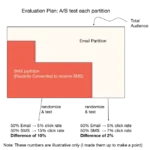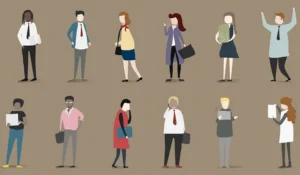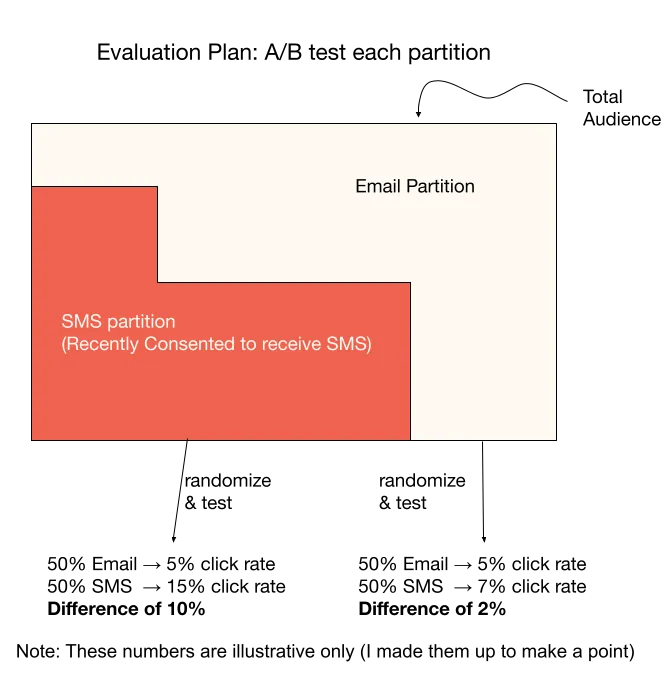Being a developer is a creative, highly-paid profession that can even be fun, but it’s also still a job. Here’s what you need to know.
I’ll always remember when I became unemployable as a developer.
Life had happened, and I hadn’t had the time to code lately. That didn’t seem like a big deal, since I had been coding professionally since 2004.
At the time, I was working 45–50 hours a week at my full-time physical therapy job on top of 5+ hours every weekend as an Airbnb SuperHost.
Ironically, it’s Airbnb that got me so excited about coding again; their user experience was amazing, whether I was on web or the Android app.
So, in 2019, when I felt like I’d accomplished everything I’d ever wanted to in my sports medicine career, I learned about React 16.8 with Hooks.
This seemed like a much better way to build dynamic apps than what had been around before: ASP, PHP, WordPress, Drupal, jQuery, Angular, etc.
Within a few months, I was a React expert with 50 articles published on my blog, and that had even landed me a remote job as a developer!
Being a software engineer was my dream job for as long as I can remember. I had the skills, the degree, and a few years of solid experience under my belt. Yet, somehow, I found myself in a position where I felt increasingly disconnected from the field. Over time, my career as a software engineer unraveled, and I eventually became unemployable in this field. But, instead of viewing this as a failure, I look back on it as one of the most valuable learning experiences of my life.
Here’s the story of how it happened, and the lessons I took away from it.
1. Burnout and the Strain of Perfectionism
I entered the tech industry with excitement, ready to dive into code and solve complex problems. However, after a few years, I found myself trapped in a cycle of perfectionism. I wanted everything I touched to be flawless, from the code I wrote to the way I interacted with colleagues. As deadlines tightened and expectations grew, I struggled to balance the quality of my work with the speed demanded by the industry.
Burnout slowly crept in. I began working longer hours, skipping breaks, and neglecting my personal life. Instead of solving problems, I started feeling like I was constantly firefighting—fixing bugs, addressing technical debt, and dealing with last-minute changes that seemed to undermine all my previous work.
2. Lack of Adaptability
As a software engineer, I was often told to “adapt” to new technologies and tools. While I was initially excited about learning, over time I grew weary of constant technological shifts. Every new tool or framework felt like it demanded a huge learning curve, and the constant pressure to stay up-to-date with the latest trends started to wear me down.
At some point, I stopped keeping up with new technologies altogether. Instead of embracing new challenges, I clung to the technologies I was comfortable with, even if they were no longer considered “cutting-edge.” This lack of adaptability made me feel increasingly out of place in the industry. Companies started favoring engineers with knowledge of the latest tools, while I found myself stuck in a time warp with outdated skills.
3. Poor Communication Skills and Isolation
In addition to my technical struggles, my communication skills also began to hinder my career. I had always been a bit introverted and found it difficult to speak up in meetings, collaborate with teams, or engage in constructive conversations. As a result, I often felt isolated within teams, unable to voice concerns, share ideas, or connect with others in meaningful ways.
In the software engineering field, technical knowledge alone isn’t enough. Effective communication—whether with team members, stakeholders, or clients—is just as important. I failed to recognize this early enough, and as my isolation grew, so did my sense of frustration.
4. A Negative Attitude Toward Change
One of the hardest lessons I learned was how my attitude toward change contributed to my downfall. The tech industry is constantly evolving, and companies expect their employees to evolve with it. However, I began to resist change—whether it was new processes, company restructuring, or changing project goals. My reluctance to embrace change made me seem inflexible and hard to work with, further pushing me away from potential job opportunities.
I didn’t just resist professional change; I also resisted personal growth. I stopped seeking feedback from colleagues and mentors, believing that I knew everything I needed to know. The truth was, I had stopped growing, and I became too comfortable in my own limitations.
5. The Breaking Point: Realizing I Was Unemployable
The breaking point came after months of unsuccessful job searches, countless interviews where I didn’t even make it past the first round, and a general feeling of rejection. I had become unemployable—not because I lacked the technical skills, but because I was out of sync with the expectations of the industry. I was a victim of my own burnout, inflexibility, and isolation.
However, as tough as it was, this period forced me to take a step back and reflect. I realized that my career was not a failure, but a series of mistakes that led me to a deeper understanding of myself and my work.
What I Learned
- Adaptability is Key
The tech industry moves at a breakneck pace, and staying relevant means being open to new ideas, tools, and methodologies. I learned that the ability to adapt—whether through learning new technologies or changing how I worked—is essential for career longevity. Today, I approach learning with curiosity, knowing that the skills I have today will be outdated tomorrow, and that’s okay.
- Work-Life Balance is Crucial
Burnout almost cost me everything. I now understand that work is just one part of a fulfilling life. Striving for perfection and sacrificing my well-being was a mistake I’ll never repeat. Balance is essential—not just for personal happiness, but for professional success as well. Taking time for self-care, hobbies, and relationships is just as important as meeting deadlines and writing clean code.
- Communication Can Make or Break You
Being technically skilled is no longer enough. The ability to communicate effectively is just as important. Whether it’s explaining complex concepts in simple terms, giving and receiving feedback, or collaborating with diverse teams, communication is crucial in today’s workplace. I’ve since worked hard to improve my communication skills, and the results have been eye-opening.
- Embrace Change and Seek Feedback
Resisting change stifled my growth. I learned that feedback is not something to fear but to embrace. Whether it comes from a peer, manager, or mentor, feedback helps you grow and improve. Additionally, embracing change—whether it’s new technologies, new ways of working, or new career paths—can lead to exciting opportunities.
- Personal Growth is a Lifelong Journey
Finally, I learned that personal and professional growth is a continuous process. The day you stop learning or growing is the day you start stagnating. I now focus on developing not only my technical skills but my emotional intelligence, creativity, and adaptability as well.
Becoming unemployable as a software engineer was a humbling experience, but it ultimately helped me find clarity. I learned that technical expertise alone is not enough to sustain a successful career. Adaptability, communication, work-life balance, and a willingness to embrace change are all crucial to success.
While my journey in software engineering may have taken an unexpected turn, the lessons I learned have shaped me into a more resilient and self-aware individual. Now, as I explore new opportunities and roles in tech or even outside it, I do so with the understanding that growth comes from both successes and setbacks.















